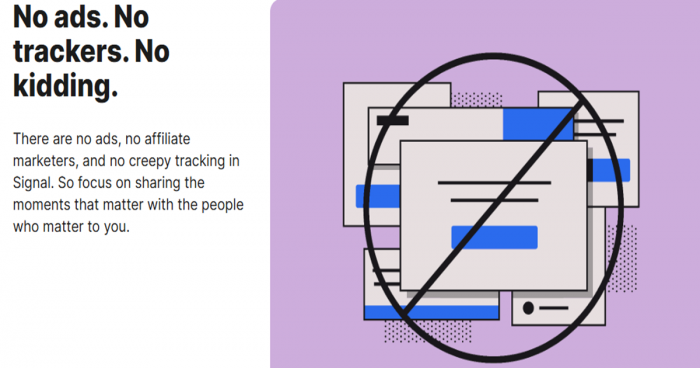First off, when I was investigating private messaging software, I came across Signal. Available on desktop, Android, and iOS, Signal is a free, encrypted communication tool. The app is meant for private one-on-one and group messaging as well as for encrypted video and voice calls.
Signal Foundation, a non-profit organization, creates and sustains Signal. That structure is important in that it implies Signal doesn't depend on adverts, tracking, or data sales to function. Open-source code permits security experts, along with developers, to freely review it.
A private platform also has to demonstrate in practical use its way of managing consumer information.
Research into Signal data revealed that it is really restricted. Signal's official support site says it doesn't keep group membership, contact lists, messages, or message timestamps.
During an FBI inquiry, a BBC News report stated that Signal could only supply the creation date of the suspect's account and the last connection time.
Data collection limits make encryption even more necessary for message security..
Signal Protocol, considered as one of the most effective encryption systems now in wide use, is used by Signal. It guarantees complete encryption of all material, including files, photos, phone calls, and text messages, over end-to-end. This implies that only the sender and the recipient can see or hear what is transmitted since even Signal is unable to get access to it.
So respected is the protocol that it is also used in Skype, Facebook Messenger (in secret chat mode), and WhatsApp.
But a secure system isn't only the result of encryption; it also depends on implementation.
From what little I have seen, Signal is designed to withstand even legal coercions. Very little can be turned over even with a subpoena because it doesn't store message content or metadata.

Still, Signal needs a telephone number for registration. Although not apparent to others except spread, this could be regarded as a possible weakness. Signal is working on adding usernames as an optional identifier.
Strong encryption notwithstanding, the phone number stipulation raises legitimate privacy issues.
Strictly speaking, Signal messages are securely transmitted. Someone could read your messages just like any program if they gain physical access to your unlocked phone. Signal therefore gives more options, including:
Lost or damaged, these options assist in lowering exposure.
In view of this, how does Signal stack up against other encrypted applications?
In some important aspects, Signal differs from WhatsApp and Telegram. WhatsApp gathers more data, including contact information and usage patterns, but it employs the same encryption technique. By default, Telegram keeps messages on its cloud servers and lacks end-to-end encryption.
The Economic Times says Signal is a great option for researchers, whistleblowers, and journalists given its minimalist data approach.
Still, no app is perfect; your general privacy level depends on your device usage.
Signal, after going over official records and third-party evaluations, appears to offer one of the most secure messaging experiences possible. People who prize privacy will find it a good match given its strong encryption, minimal data acquisition, and non-profit business model.
But like every tool, its security relies on user behaviour. Still relevant are awareness of things shared, PINs, and device protection.
Be the first to post comment!